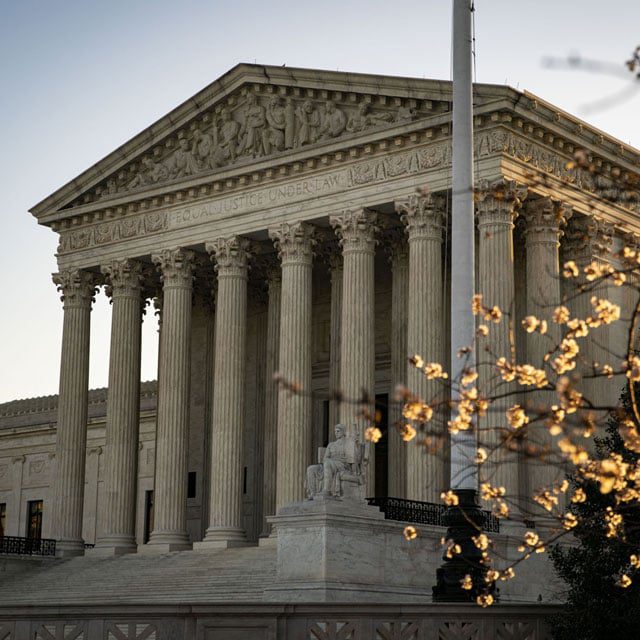Supreme Court Ruling Set to Weaken SEC, DOL Authority

“If the courts are not required to defer to the SEC’s reasonable interpretation of its statutes, then I would anticipate that conservative judges who have long been suspect as to the SEC’s interpretation of its own authority will conclude the SEC has over-reached in promulgating the sweeping climate change disclosure rules that it did.”
The SEC’s recent rules pertaining to private fund advisors, “which were vacated by the Fifth Circuit in early June, are also ultimately much less likely to go into effect,” Gold added.
With the Supreme Court’s Loper Bright opinion, “the task of reviewing agency authority under congressional statutes is returned to the courts, where it belongs,” added ICLE’s Manne.
Stephen Hall, legal director for Better Markets, said Friday in a statement that with the ruling, the Supreme Court “has abolished the common sense, longstanding, and legally appropriate obligation of federal judges to respect the way agencies interpret the laws they enforce.”
Judges, Hall continued, “now have the unlimited discretion to substitute their own reading of the law for what the experts say it means. That spells disaster in cases where a statute is vague, as they often are, and ideologically biased judge want to discard the agency’s interpretation to achieve what they see as a preferred outcome. In other words, judges can now shove the experts aside and make their own decisions, without a shred of the deep experience or expertise that agencies bring to their understanding and implementation of the law.”
The decision also “has the potential to return the country to the control of Wall Street banks, financiers, corporations, CEOs, and the modern-day robber barons because it will be much more difficult for the government to constrain their predatory and often illegal conduct in a timely or effective way,” Hall maintained.
Investor Harm
“Investors saving for their retirement, child’s education, and other important goals need the protections of the securities and retirement laws to ensure they have the information they need to make informed investment decisions and can hold those in the market who harm them accountable for any misconduct,” Micah Hauptman, director of investor protection for the Consumer Federation of America, added in another email.
The Supreme Court’s decision “makes it much harder for investors to receive those necessary protections and, as a consequence, investors will suffer,” Hauptman said.
A ‘Wrecking Ball’
“Today’s decision has taken a wrecking ball to the regulatory systems that have served our country for decades,” said Rep. Bobby Scott, D-Va., ranking member on the House Committee on Education and the Workforce, in a statement. “Agency interpretation of vague statutes is necessary to ensure Americans across the country can have reassurance that their food and medication is safe for consumption, workplaces are safe and secure, student borrowers are not defrauded, and so much more.”
With the decision, the Supreme Court “upended 40 years of administrative jurisprudence and limited government agencies’ ability to regulate in their areas of expertise and properly serve the American people,” Scott said.
By eliminating Chevron deference, “the Supreme Court has effectively taken steps to further politicize the courts and cripple the nation’s regulatory systems — a ruling that will no doubt have disastrous consequences for Americans,” Scott said.
Sen. Bill Cassidy, R-La., ranking member of the Senate Health, Education, Labor and Pensions (HELP) Committee, added in another statement that “For too long, Chevron deference has allowed unelected bureaucrats, insulated from political accountability, to exercise power that exceeds their authority. Such unfettered power is a perversion of the Constitution.”
The Supreme Court decision, Cassidy said, “helps return the role of legislating back to the people’s elected representatives.”




